Judge OKs Apple Injunction on Samsung's Nexus Phone
Updated: 2012-06-29 22:23:46
A district judge has sided with Apple, laying down a sales ban on one of Samsung's flagship Android devices, the Galaxy Nexus. [Read more]...
 Zorin OS group has released Zorin OS Business edition aimed at small and medium sized business organizations.
Zorin OS group has released Zorin OS Business edition aimed at small and medium sized business organizations.
 Good news for KDE lovers. If you own a Raspberry Pi, you will now be able to run your favorite K Desktop Environment and integrated programs in it. Thanks to a developer named Luca Tringali.
Good news for KDE lovers. If you own a Raspberry Pi, you will now be able to run your favorite K Desktop Environment and integrated programs in it. Thanks to a developer named Luca Tringali.
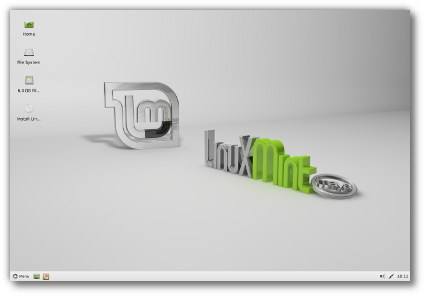 The team is proud to announce the release of Linux Mint 13 Xfce RC.
The team is proud to announce the release of Linux Mint 13 Xfce RC. 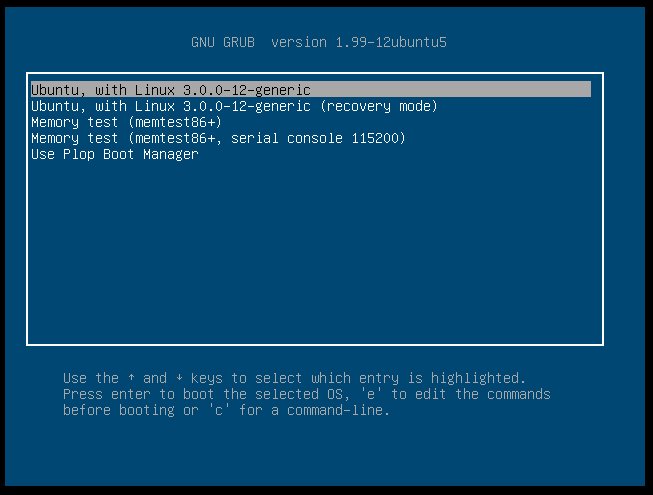 Mathbuntu brings a nice batch of math and science software, textbooks, and other goodies to Ubuntu and Kubuntu. Let's try it out and see if it makes us smarter.
Mathbuntu brings a nice batch of math and science software, textbooks, and other goodies to Ubuntu and Kubuntu. Let's try it out and see if it makes us smarter.
 Gnome 3.6 will bring back the power-off or shutdown option as default in the Gnome Shell user menu.
Gnome 3.6 will bring back the power-off or shutdown option as default in the Gnome Shell user menu.
 A picture is worth a thousand words, as the saying goes. The picture below is not an org chart about a foundation’s governance, but it is rather an attempt at describing how the project will work and what it will aim at. It displays the general logic of contributions, by...
A picture is worth a thousand words, as the saying goes. The picture below is not an org chart about a foundation’s governance, but it is rather an attempt at describing how the project will work and what it will aim at. It displays the general logic of contributions, by...
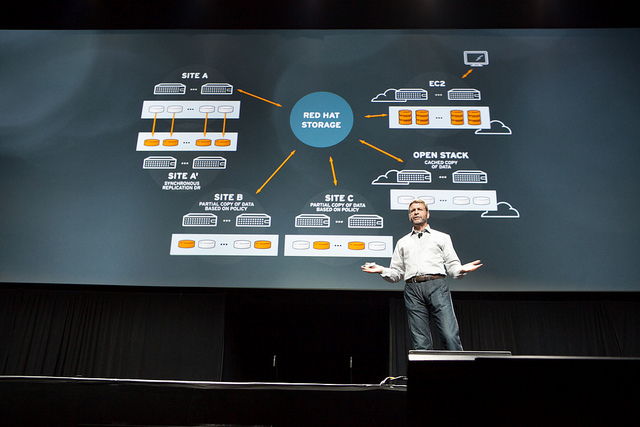 Red Hat dominates the open source cloud news this week with a string of product launch and acquisition announcements from the Red Hat Summit in Boston and the ensuing commentary from the blogosphere.
Red Hat dominates the open source cloud news this week with a string of product launch and acquisition announcements from the Red Hat Summit in Boston and the ensuing commentary from the blogosphere.
 Google has finally released the most 'advanced', popular and widely used mobile operating system - Android 4.1, Jelly Bean. With Jelly Bean, Android has become the benchmark of what a mobile OS should be with iOS and Windows Phone trying to catch up with it.
Google has finally released the most 'advanced', popular and widely used mobile operating system - Android 4.1, Jelly Bean. With Jelly Bean, Android has become the benchmark of what a mobile OS should be with iOS and Windows Phone trying to catch up with it.
 The Google Chrome version 20.0.1132.43 for Windows, Mac and Linux comes with a loads of bug fixes and also the Pepper plugin that will allow Linux users to watch web videos and use flash without installing the Flash plugin.
The Google Chrome version 20.0.1132.43 for Windows, Mac and Linux comes with a loads of bug fixes and also the Pepper plugin that will allow Linux users to watch web videos and use flash without installing the Flash plugin.
 You can manually install Android 4.1 on Galaxy Nexus. The regular OTA update is coming next month.
You can manually install Android 4.1 on Galaxy Nexus. The regular OTA update is coming next month.
 openSuse 12.2 will be released soon,or atleast we can hope so. Here is a list of upcoming features supposed to be shipped by default with the next version of this operating system.
openSuse 12.2 will be released soon,or atleast we can hope so. Here is a list of upcoming features supposed to be shipped by default with the next version of this operating system.
 : Skip to content Skip to main navigation Skip to 1st column Skip to 2nd column Linux Foundation Training Events Video Linux.com Home News Software Applications Multimedia Linux Kernel Development Developer Hardware Desktops Laptops Peripherals Servers Drivers Embedded Mobile Mobile Linux Netbooks MIDs Phones Business of Open Source Governance Legal Enterprise Computing Enterprise Business Cloud Computing Clustering Linux Storage High Performance Networking Systems Management Case Studies Featured Blogs Technology Feature Security Special Feature Stories of Linux Linux Developers RSS Feeds Galleries Friday Funnies Linux Community Events Forums Contests and Polls Contests 2011 Tshirt Design Content Finalists 2012 T-shirt Design Contest 2012 T-shirt Design Contest Finalists Join the Linux
: Skip to content Skip to main navigation Skip to 1st column Skip to 2nd column Linux Foundation Training Events Video Linux.com Home News Software Applications Multimedia Linux Kernel Development Developer Hardware Desktops Laptops Peripherals Servers Drivers Embedded Mobile Mobile Linux Netbooks MIDs Phones Business of Open Source Governance Legal Enterprise Computing Enterprise Business Cloud Computing Clustering Linux Storage High Performance Networking Systems Management Case Studies Featured Blogs Technology Feature Security Special Feature Stories of Linux Linux Developers RSS Feeds Galleries Friday Funnies Linux Community Events Forums Contests and Polls Contests 2011 Tshirt Design Content Finalists 2012 T-shirt Design Contest 2012 T-shirt Design Contest Finalists Join the Linux Earlier this week a leak prompted rumours to circulate suggesting that Google's hotly anticipated tablet would be announced today. Now, Reuters is reporting that an unnamed Asustek executive has confirmed that to be the case. More ...
Earlier this week a leak prompted rumours to circulate suggesting that Google's hotly anticipated tablet would be announced today. Now, Reuters is reporting that an unnamed Asustek executive has confirmed that to be the case. More ...
 Check this out, it's Android Jelly Bean mascot! Google just installed it in their Mountain View campus, right next to Ice Cream Sandwich. Clearly, the new version of the world's most popular cellphone operating system will be announced tomorrow at Google I/O.
Check this out, it's Android Jelly Bean mascot! Google just installed it in their Mountain View campus, right next to Ice Cream Sandwich. Clearly, the new version of the world's most popular cellphone operating system will be announced tomorrow at Google I/O. 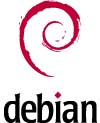 Small and medium-sized businesses prefer Debian over Red Hat and CentOS for operating their file servers, according to a survey released Monday by cloud storage network provider Symform.
Small and medium-sized businesses prefer Debian over Red Hat and CentOS for operating their file servers, according to a survey released Monday by cloud storage network provider Symform.
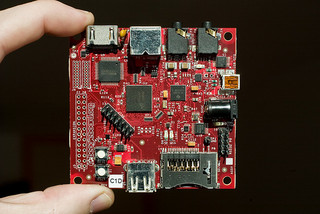 The aspberry Pi ingle board computer (SBC) that began shipping in April in $25 and $35 versions has taken the hacker world by storm. Yet, the education-focused, development board is just the latest and cheapest of a number of recent open source, community hardware projects designed for hobbyist devices, educational platforms, prototyping, and even some limited-run commercial products. Most of the seven open-spec boards listed here cost $100 to $200, but unlike the ARM11-based Pi, they feature ARM Cortex-A8 and -A9 processors and support Android in addition to running various Linux distributions.
The aspberry Pi ingle board computer (SBC) that began shipping in April in $25 and $35 versions has taken the hacker world by storm. Yet, the education-focused, development board is just the latest and cheapest of a number of recent open source, community hardware projects designed for hobbyist devices, educational platforms, prototyping, and even some limited-run commercial products. Most of the seven open-spec boards listed here cost $100 to $200, but unlike the ARM11-based Pi, they feature ARM Cortex-A8 and -A9 processors and support Android in addition to running various Linux distributions.
 With WWDC behind us and Microsoft's Surface tablet out of the bag, it's Google's turn to take the lid off its latest. It's annual I/O developer conference, which starts Wednesday, should offer a heaping buffet of new products and software developments.
With WWDC behind us and Microsoft's Surface tablet out of the bag, it's Google's turn to take the lid off its latest. It's annual I/O developer conference, which starts Wednesday, should offer a heaping buffet of new products and software developments.  Making the switch from Windows to Linux can be a bit challenging for some uses, if they have gotten so accustomed to Windows that using any other OS makes them estranged.
Making the switch from Windows to Linux can be a bit challenging for some uses, if they have gotten so accustomed to Windows that using any other OS makes them estranged.
 Gnome 3.5.3 is around the corner and a lot of hype is currently going on featuring this release. Here we bring to you the most noticeable changes implemented this week.
Gnome 3.5.3 is around the corner and a lot of hype is currently going on featuring this release. Here we bring to you the most noticeable changes implemented this week.
 Korea's golden goose is on track to drop its 10 millionth Galaxy S III by July, according to Samsung mobile head Shin Jong-kyun. The expectation comes despite limited supply, fueled by a component shortage at the smartphone giant. Regardless of this notable shortcoming, Samsung has wasted no time getting its latest handset to market,...
Korea's golden goose is on track to drop its 10 millionth Galaxy S III by July, according to Samsung mobile head Shin Jong-kyun. The expectation comes despite limited supply, fueled by a component shortage at the smartphone giant. Regardless of this notable shortcoming, Samsung has wasted no time getting its latest handset to market,...
 This is the third profile in our 30-week series that features a different Linux kernel developer each week. Last week we featured homas Gleixner, after beginning the series with inus Torvalds. The profiles we publish throughout the rest of 2012 will help illustrate how these developers do their work, providing important insight on how to work with them and what makes them tick.
This is the third profile in our 30-week series that features a different Linux kernel developer each week. Last week we featured homas Gleixner, after beginning the series with inus Torvalds. The profiles we publish throughout the rest of 2012 will help illustrate how these developers do their work, providing important insight on how to work with them and what makes them tick.
 The next version of Krita, KDE's artwork program for sketching and painting, is going to be released soon. The team has released first beta of Krita 2.5 which brings many new features and improvements.
The next version of Krita, KDE's artwork program for sketching and painting, is going to be released soon. The team has released first beta of Krita 2.5 which brings many new features and improvements.
 Last week, the Electronic Frontier Foundation launched Defend Innovation, a campaign to end software patent abuse, promote seven alterations to the United States patent system, and initiate dialogue about the ways software patents actually hinder the inventors they are designed to protect. "The software patent system is broken," said EFF...
Last week, the Electronic Frontier Foundation launched Defend Innovation, a campaign to end software patent abuse, promote seven alterations to the United States patent system, and initiate dialogue about the ways software patents actually hinder the inventors they are designed to protect. "The software patent system is broken," said EFF...
 Fridrich Strba, of TDF reports that the team is working on LibreOffice CorelDraw Import Filter that will make it easier to import CorelDraw text into LibreOffice.
Fridrich Strba, of TDF reports that the team is working on LibreOffice CorelDraw Import Filter that will make it easier to import CorelDraw text into LibreOffice.
 Dell’s Christine Fronczak writes that the team at Fleet Numerical are using their Dell supercomputer to keep the Navy out of Harm’s Way. Following a tragic event where an unexpected storm in 2008 that lead to the death of a submarine crew, the U.S. Navy expanded a program to help the submarine fleet better...
Dell’s Christine Fronczak writes that the team at Fleet Numerical are using their Dell supercomputer to keep the Navy out of Harm’s Way. Following a tragic event where an unexpected storm in 2008 that lead to the death of a submarine crew, the U.S. Navy expanded a program to help the submarine fleet better...
 According to an allegedly leaked training document, this is Google's new tablet, a 7-inch Tegra 3 device running Android Jelly Bean. The document says that Nexus 7—as it is named—would hit the streets in July for $200. More ...
According to an allegedly leaked training document, this is Google's new tablet, a 7-inch Tegra 3 device running Android Jelly Bean. The document says that Nexus 7—as it is named—would hit the streets in July for $200. More ...
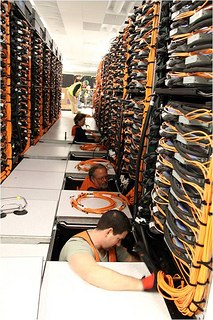 Linux-based supercomputers took 62 spots in the TOP500 list of the world's fastest supercomputers released this month, a whopping 92 percent of the list. Only two of the TOP500 supercomputers, a mere 0.4 percent, are Windows-based.
Linux-based supercomputers took 62 spots in the TOP500 list of the world's fastest supercomputers released this month, a whopping 92 percent of the list. Only two of the TOP500 supercomputers, a mere 0.4 percent, are Windows-based.  Skip to content Skip to main navigation Skip to 1st column Skip to 2nd column Linux Foundation Training Events Video Linux.com Home News Software Applications Multimedia Linux Kernel Development Developer Hardware Desktops Laptops Peripherals Servers Drivers Embedded Mobile Mobile Linux Netbooks MIDs Phones Business of Open Source Governance Legal Enterprise Computing Enterprise Business Cloud Computing Clustering Linux Storage High Performance Networking Systems Management Case Studies Featured Blogs Technology Feature Security Special Feature Stories of Linux Linux Developers RSS Feeds Galleries Friday Funnies Linux Community Events Forums Contests and Polls Contests 2011 Tshirt Design Content Finalists 2012 T-shirt Design Contest 2012 T-shirt Design Contest Finalists Join the Linux
Skip to content Skip to main navigation Skip to 1st column Skip to 2nd column Linux Foundation Training Events Video Linux.com Home News Software Applications Multimedia Linux Kernel Development Developer Hardware Desktops Laptops Peripherals Servers Drivers Embedded Mobile Mobile Linux Netbooks MIDs Phones Business of Open Source Governance Legal Enterprise Computing Enterprise Business Cloud Computing Clustering Linux Storage High Performance Networking Systems Management Case Studies Featured Blogs Technology Feature Security Special Feature Stories of Linux Linux Developers RSS Feeds Galleries Friday Funnies Linux Community Events Forums Contests and Polls Contests 2011 Tshirt Design Content Finalists 2012 T-shirt Design Contest 2012 T-shirt Design Contest Finalists Join the Linux Hi Eric,
I spoke too soon. iOS 5 now supports JSON out of the box. I am still working with a third party library which was needed in iOS 4 and earlier, and to stay backward compatible with those versions.
Anyways, it should have been supported a lot earlier considering the fact that AFAIK, Android has had it since the very beginning.
Great Article!!!!
Sohil Shah
CEO, OpenMobster - Sohil Shah
Hi Eric,
I spoke too soon. iOS 5 now supports JSON out of the box. I am still working with a third party library which was needed in iOS 4 and earlier, and to stay backward compatible with those versions.
Anyways, it should have been supported a lot earlier considering the fact that AFAIK, Android has had it since the very beginning.
Great Article!!!!
Sohil Shah
CEO, OpenMobster - Sohil Shah Skip to content Skip to main navigation Skip to 1st column Skip to 2nd column Linux Foundation Training Events Video Linux.com Home News Software Applications Multimedia Linux Kernel Development Developer Hardware Desktops Laptops Peripherals Servers Drivers Embedded Mobile Mobile Linux Netbooks MIDs Phones Business of Open Source Governance Legal Enterprise Computing Enterprise Business Cloud Computing Clustering Linux Storage High Performance Networking Systems Management Case Studies Featured Blogs Technology Feature Security Special Feature Stories of Linux Linux Developers RSS Feeds Galleries Friday Funnies Linux Community Events Forums Contests and Polls Contests 2011 Tshirt Design Content Finalists 2012 T-shirt Design Contest 2012 T-shirt Design Contest Finalists Join the Linux
Skip to content Skip to main navigation Skip to 1st column Skip to 2nd column Linux Foundation Training Events Video Linux.com Home News Software Applications Multimedia Linux Kernel Development Developer Hardware Desktops Laptops Peripherals Servers Drivers Embedded Mobile Mobile Linux Netbooks MIDs Phones Business of Open Source Governance Legal Enterprise Computing Enterprise Business Cloud Computing Clustering Linux Storage High Performance Networking Systems Management Case Studies Featured Blogs Technology Feature Security Special Feature Stories of Linux Linux Developers RSS Feeds Galleries Friday Funnies Linux Community Events Forums Contests and Polls Contests 2011 Tshirt Design Content Finalists 2012 T-shirt Design Contest 2012 T-shirt Design Contest Finalists Join the Linux Why hasn't The Linux Foundation stepped up to be an alternate (and if I may add more trustworthy) key signer?! Microsoft is engaging in blatantly anticompetitive practice here, and The Linux Foundation, Red Hat, and Canonical ought to collaborate in calling them on it and maybe even taking them to court. In the meantime, if secure boot requires a key signer, why does it have to be Verisign-by-way-of-Microsoft? Why not step up to the plate, Linux Foundation? - Michael Nachtigal
Why hasn't The Linux Foundation stepped up to be an alternate (and if I may add more trustworthy) key signer?! Microsoft is engaging in blatantly anticompetitive practice here, and The Linux Foundation, Red Hat, and Canonical ought to collaborate in calling them on it and maybe even taking them to court. In the meantime, if secure boot requires a key signer, why does it have to be Verisign-by-way-of-Microsoft? Why not step up to the plate, Linux Foundation? - Michael Nachtigal I'm sympathetic to Garrett's arguments about users being frightened by the prospect of making UEFI changes. But, I've become less so since installing Fedora 17 and deciding that doing that right now can be a daunting prospect for neophytes. Garrett's arguments work better with something like Ubuntu, which targets those neophytes. Fedora clearly targets experienced Linux users. Or, maybe there's disagreement in the Fedora camp about that.
A rational approach to pre-boot malware would see the Windows installer throw up a big red scary notice when it finds Secure Boot is not enabled. Whether the install could complete without enabling it is a choice I'm happy to leave to Microsoft. Linux and everyone else would be left alone.
- joncr
I'm sympathetic to Garrett's arguments about users being frightened by the prospect of making UEFI changes. But, I've become less so since installing Fedora 17 and deciding that doing that right now can be a daunting prospect for neophytes. Garrett's arguments work better with something like Ubuntu, which targets those neophytes. Fedora clearly targets experienced Linux users. Or, maybe there's disagreement in the Fedora camp about that.
A rational approach to pre-boot malware would see the Windows installer throw up a big red scary notice when it finds Secure Boot is not enabled. Whether the install could complete without enabling it is a choice I'm happy to leave to Microsoft. Linux and everyone else would be left alone.
- joncr Looking for a good end-user benefit of UEFI bios
UEFI seems to be a jail. If you are in, you are safe, if you are out, you can't get in (to boot your system)
Why do we not do security by having a "saved system concept for operating systems"?
Here is what I call a saved system.
We install linux or other system to a certain point in the installation after we create a user. We then initiate a memory image save. When you need to use the system, boot this saved system. It will load and run. When finished, you log out. To return you have to reload the saved system.
Whatever virus was installed while you were logged in, is gone. The saved system is always a clean system.
A saved system should boot in 5 to 10 seconds. - lsatenstein
Looking for a good end-user benefit of UEFI bios
UEFI seems to be a jail. If you are in, you are safe, if you are out, you can't get in (to boot your system)
Why do we not do security by having a "saved system concept for operating systems"?
Here is what I call a saved system.
We install linux or other system to a certain point in the installation after we create a user. We then initiate a memory image save. When you need to use the system, boot this saved system. It will load and run. When finished, you log out. To return you have to reload the saved system.
Whatever virus was installed while you were logged in, is gone. The saved system is always a clean system.
A saved system should boot in 5 to 10 seconds. - lsatenstein As a member the Linux Foundation, what are some of the benefits the linux foundation will gain from Samsung's membership? - Istimsak Abdulbasir
As a member the Linux Foundation, what are some of the benefits the linux foundation will gain from Samsung's membership? - Istimsak Abdulbasir The omega tau podcast episode 96 from 03 Jun 2012 has interviews of two LHC beam controllers, and the second fellow discusses the hardware and software, including those running linux or on linux. [url]omegataupodcast.net[/url] - chattr
The omega tau podcast episode 96 from 03 Jun 2012 has interviews of two LHC beam controllers, and the second fellow discusses the hardware and software, including those running linux or on linux. [url]omegataupodcast.net[/url] - chattr Please include in your next chapter Michel Xhaard, that person who wrote Linux drivers for 235 various webcams. - mrak
Please include in your next chapter Michel Xhaard, that person who wrote Linux drivers for 235 various webcams. - mrak The first thing Samsung should do to show that they are serious is to let us use our own builds on samygo on their tv.s https://en.wikipedia.org/wiki/SamyGO. Samsung has been increasing their attempts to stop us tv-users installing our own firmware, by locking their own properiatry firmware harder and harder. :( The benefits for us users is that we could see a multiiple of usage on their tvs, with cool plugins and other stuff. Please, Samsung, let's us install our own firmware on your tvs.Stop encryption-lock-in and open-source the firmware!! - Don
The first thing Samsung should do to show that they are serious is to let us use our own builds on samygo on their tv.s https://en.wikipedia.org/wiki/SamyGO. Samsung has been increasing their attempts to stop us tv-users installing our own firmware, by locking their own properiatry firmware harder and harder. :( The benefits for us users is that we could see a multiiple of usage on their tvs, with cool plugins and other stuff. Please, Samsung, let's us install our own firmware on your tvs.Stop encryption-lock-in and open-source the firmware!! - Don Skip to content Skip to main navigation Skip to 1st column Skip to 2nd column Linux Foundation Training Events Video Linux.com Home News Software Applications Multimedia Linux Kernel Development Developer Hardware Desktops Laptops Peripherals Servers Drivers Embedded Mobile Mobile Linux Netbooks MIDs Phones Business of Open Source Governance Legal Enterprise Computing Enterprise Business Cloud Computing Clustering Linux Storage High Performance Networking Systems Management Case Studies Featured Blogs Technology Feature Security Special Feature Stories of Linux RSS Feeds Galleries Friday Funnies Linux Community Events Forums Contests and Polls Contests 2011 Tshirt Design Content Finalists 2012 T-shirt Design Contest Join the Linux Foundation Carry the Linux Credit Card Community Blogs
Skip to content Skip to main navigation Skip to 1st column Skip to 2nd column Linux Foundation Training Events Video Linux.com Home News Software Applications Multimedia Linux Kernel Development Developer Hardware Desktops Laptops Peripherals Servers Drivers Embedded Mobile Mobile Linux Netbooks MIDs Phones Business of Open Source Governance Legal Enterprise Computing Enterprise Business Cloud Computing Clustering Linux Storage High Performance Networking Systems Management Case Studies Featured Blogs Technology Feature Security Special Feature Stories of Linux RSS Feeds Galleries Friday Funnies Linux Community Events Forums Contests and Polls Contests 2011 Tshirt Design Content Finalists 2012 T-shirt Design Contest Join the Linux Foundation Carry the Linux Credit Card Community Blogs